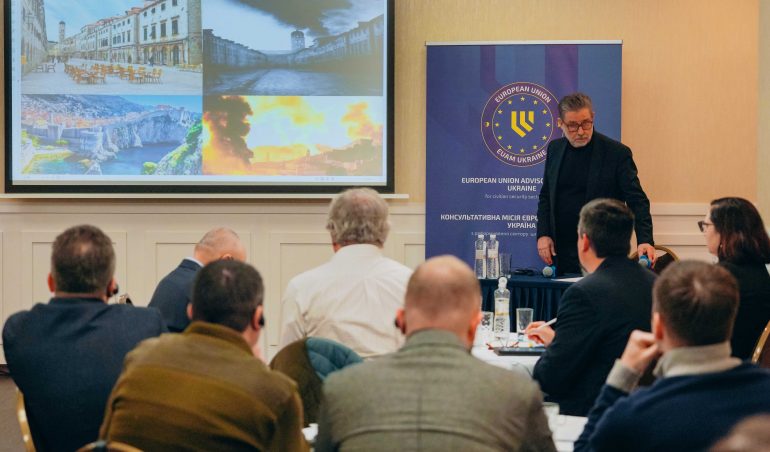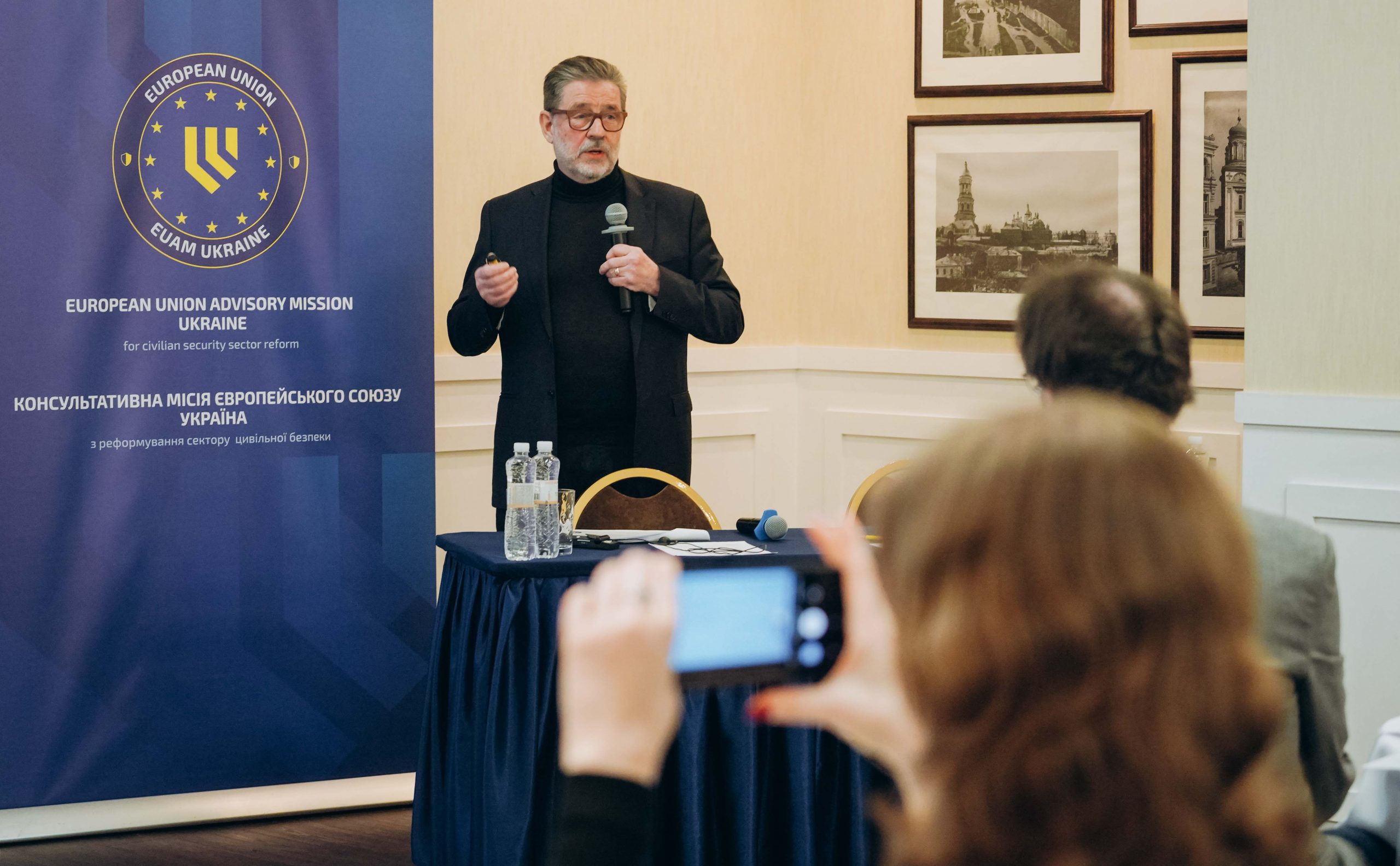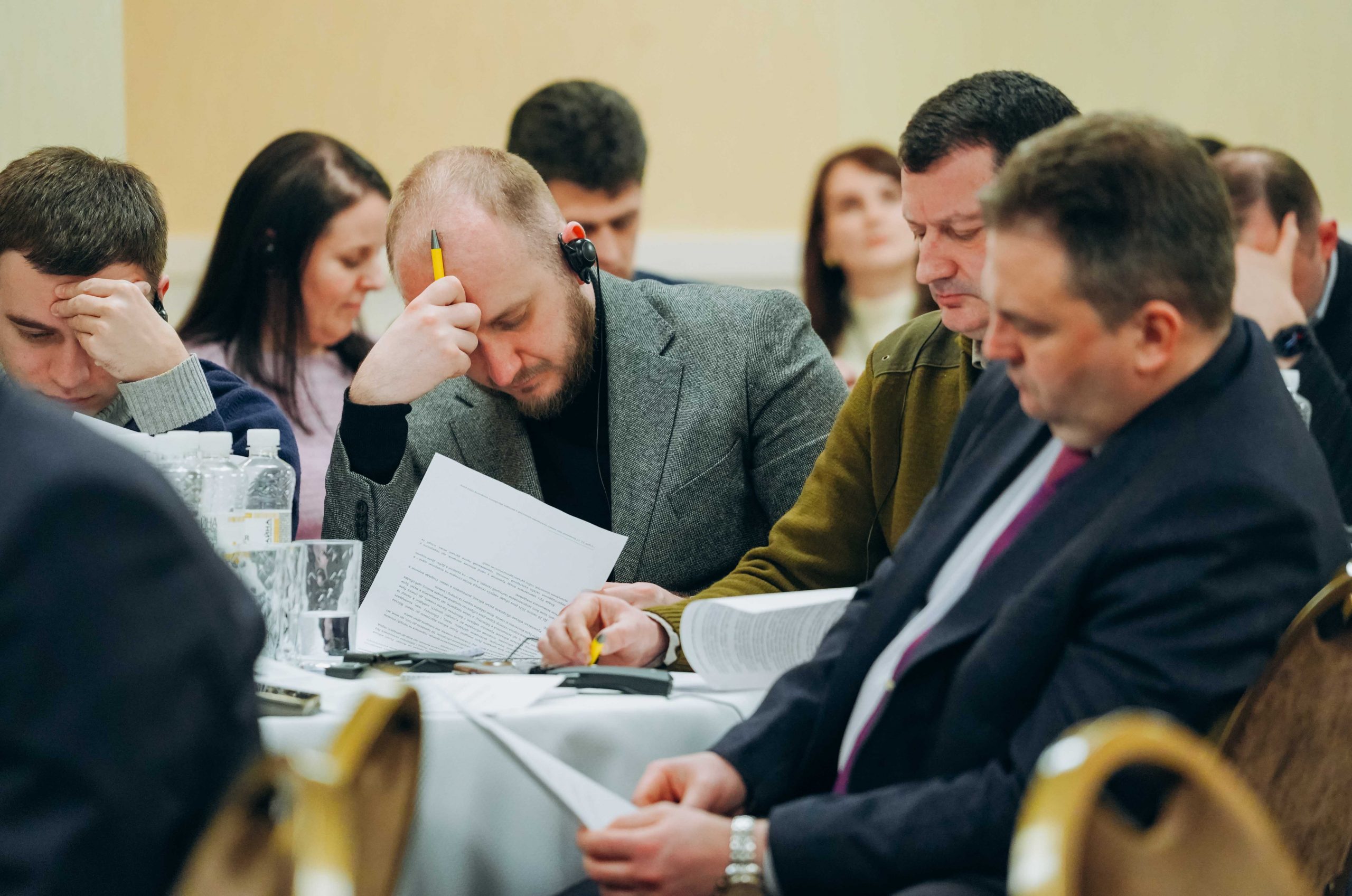Preserving Ukraine’s identity: Law enforcement agencies train on crimes against cultural heritage
March 11, 2024
When it comes to destruction of cultural heritage, every war seems tragically similar in committing such crimes, even at decades of distance.
Cultural heritage is part of what defines people as a nation. Preserving cultural heritage is essential for future generations to understand and identify with their history. Its destruction can have long-lasting impacts on the collective memory and the identity of people. Addressing crimes against cultural heritage is part of upholding the international humanitarian law, and holding perpetrators accountable is crucial for achieving justice.
This is why, in the context of EUAM Ukraine’s participation in the Atrocity Crimes Advisory Group for Ukraine (ACA), workshops on crimes against cultural heritage were organised in Kyiv last month (22-23), and this March (5-6) in Poltava. Ukrainian investigators and prosecutors from the National Police of Ukraine (NPU), the Security Services of Ukraine (SSU), the State Bureau of Investigation (SBI) and the Office of the Prosecutor General (OPG) attended the events in Kyiv. In Poltava, along with officers from NPU, SSU, SBI, personnel from the regional prosecution offices (RPO) of Chernihiv, Dnipropetrovsk, Kharkiv, Kyiv, Poltava, and Zaporizhzhia regions joined the activity.

According to the International Criminal Tribunal for the former Yugoslavia (ICTY) systematic crimes against cultural heritage can amount to crimes against humanity, “for all of humanity is indeed injured by the destruction of a unique religious culture and its concomitant cultural objects”.
The shelling of Dubrovnik, a UNESCO heritage site, during the Yugoslav wars in the 1990s, was one of the examples presented during the workshop, which aimed at enhancing capabilities on the investigation and prosecution of crimes against cultural heritage.
The presentations given by international and national experts focused on strengthening the knowledge of relevant international cases, international treaties, and best practices on investigation and prosecution of crimes against cultural heritage. With a practical session, the participants solved a fictitious case scenario on cultural heritage crimes.

National and international criminal law and cooperation, investigations, and prosecutions of crimes against cultural heritage, and relevant adjudication at the ICTY and the International Criminal Court (ICC) were discussed at the workshop, along with mechanisms for international reparation.
During the workshop it was stressed that investigating and prosecuting those responsible for cultural heritage related war crimes can also deter such actions in the future. Investigating and prosecuting crimes against cultural heritage during wartime is therefore crucial and necessary.

Documenting and preserving evidence of these crimes can contribute to the potential restoration and reconstruction of damaged and destroyed heritage sites.
The overall aim is for Ukraine to be able to bring the perpetrators of crimes against its cultural heritage to justice.


